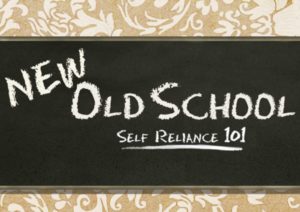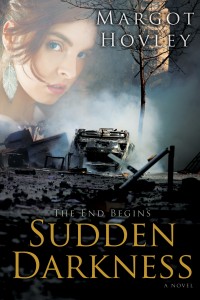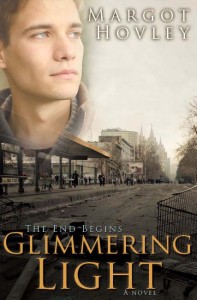Inklings
wow that feels good…
…to see my byline in print.
My review of the new book by Jennifer Chiaverini, The Wedding Quilt, appeared in the Deseret News yesterday, in the Sunday Arts section. You can also see it here:
To celebrate I’ll give away a free copy of this beautiful hardcover book. To enter, become a follower of this blog and leave me a comment.
an interview with David Farland
In conjunction with the release of David Farland’s amazing new ebook, Nightengale, I’m more than pleased to share this interview with you. Dave is a long-time friend and mentor of mine.
Margot: Dave! Thanks for appearing today on the Inklings site. I’m excited to talk to you and learn more about your new book, Nightengale.
Not only have you been a New York Times bestseller, but you’ve also won your share of awards with your writing.  Can you tell us a few?
David: With my first big short story, I won the L. Ron Hubbard Writers of the Future Gold Award for the best story of the year. That’s what got my career jump-started. My first novel, a curious blend of Latin American fantasy realism and cyberpunk, won the Philip K. Dick Memorial Special Award for “Best Novel in the English Language,†a title that I have always thought was a bit embarrassing. My latest novel won the Whitney Award for best novel of the year.
Margot: You always have quite a variety of experiences to talk about and it shows in your writing too. What kinds of jobs have you held?
David: When I was young I did all kinds of odd things. I picked crops, raised pigs and calves, caught night crawlers for fishermen, delivered newspapers, and sold produce door-to-door, all before I was eleven. Back in those days, it wasn’t illegal for a kid to work his tail off.
At eleven, I began bucking hay, moving irrigation pipe, and working for my father in his meat company. By the time I was sixteen, I was a journeyman meat cutter, then began helping to manage my parents’ grocery store. At nineteen, I went off to become a missionary, and the age of 22, I became a prison guard as I worked my way through college.
After that I became a prize writer, an editor of nonfiction, a fiction editor, a contest judge, a writing instructor, a video game designer and scripter, a film writer, and a movie producer.
I think I’m going to quit taking on new jobs, but the variety of experiences and perspectives has contributed to my writing.
What made you want to be a writer?
Reading great books. That’s how most of us writers start: we read a book that changes our life, and suddenly we want to begin creating them, too.
For me, the book was Lord of the Rings. I read it at age 16, then went down to the Grassroots Bookstore in Corvallis, Oregon and began reading anything similar. Within a few months, I ran out of fantasy novels, and I began to read science fiction.
About that time, I bought a typewriter and began creating my own works. I used to hide the manuscripts under my mattress so that my mother wouldn’t find them.
Margot: I understand you were a writing professor at Brigham Young University. Do you still teach writing at all?
David: I wish that I had more time to do it. I don’t have a major university nearby. I’ve been offered jobs, but I don’t want to have to travel too far, so I mostly teach seminars nowadays.
You can learn about them by going to my website at www.davidfarland.com. I teach a big seminar with some other New York Times bestsellers—Kevin J. Anderson, Brandon Sanderson, Eric Flint, Rebecca Moesta. We also invite in guest speakers. You can learn about that one by going to www.superstarsofwriting.com. Additionally, I’ll be putting out some of my writing manuals for sale online soon.
Margot: So, you’ve trained a lot of very successful authors, a lot of New York Times #1 bestsellers like Stephenie Meyer, Brandon Mull, Brandon Sanderson. Do you have any tips for new authors?
David: Reams of it! About four years ago, a writer said, “You know what I need? I need you to come over to my house every day and kick me in the pants so that I can keep inspired to write.â€
That sounded absurd, but then I realized . . . well, I could do it, sort of, and after a few months, I’ll have enough material to write my book on storytelling.
So every day, or sometimes every few days if life gets too busy, I send out a little snippet of writing advice by email to thousands of people around the world . . . maybe one or two pages. It’s called The Daily Kick in the Pants.
Recently I found that I had some 4000 pages of text. It’s not a book on writing; it has turned into an encyclopedia!
Margot: I love getting my Kick. Tell my readers how they can get the Daily Kick.
David: Simple, all you have to do is sign up on my web site at www.davidfarland.com. It’s free.
Margot: If you were an emerging author today, what would you do to break into writing?
David: Learn to write well enough to establish credibility. You do that by winning contests and writing awards, getting cover quotes from reviewers, or publishing in traditional venues, such as magazines or with book publishers. But you’re going to have to write fast in this new market if you’re going to build an audience.
Second, most new writers are focused on just getting a book accepted by a publisher, but they soon find out there is a huge difference between being published and becoming successful enough to make a good living at writing. So my question is, what are some of the secret strategies you’ve tried over the years to become highly successful?
I wish that I knew of some “secret†strategies. You work hard. You write well. You market what you write. Then you start over again.
I teach writing workshops that are a week long, and there I might advise you on outlining a book, or how to rewrite it. But to cover everything that I know about writing—that’s a course that would take eight hours a day and would last for months.
Writing as an art is sort of static. There’s a certain body of knowledge. There’s been a lot written about the craft of writing, and if you search long and hard you can learn it all.
But when it comes to marketing your work, that’s trickier. The marketing world is always changing, and a strategy that made someone millions last week won’t work at all tomorrow.
And finally, recognizing that the world of publishing for tomorrow is going to be very different from what it was even three years ago, what would you do to shortcut from new writer to super success today?
The average writer takes seven years of practice from the time that they begin writing to the time that they publish.
You can cut that down to just a few months if you throw yourself into it wholly. I’d begin taking writing workshops from people who know what they’re doing, and also begin networking with other writers.
I believe that most people can do it, but it requires a tremendous amount of dedication, and the writer who tries it has to have a lot of faith in himself or herself. Having a support structure—parents or a spouse—is also really valuable.
You’ve had your books published in dozens of languages, mentored some of the great authors of our day, been praised by critics, received some of the highest honors an author can be awarded, but like all people you must have some dreams that have not been fulfilled. So what drives you to do better? What goals have continued to elude you?
I’ve done well as a bestseller, but of course I’ve never sold in numbers like some of my students have. In part, that’s because I’ve always written books that were for smaller audiences. If I wanted to write for money, I might have tried thrillers by now.
In a way, I suppose I do what I do because I love the kind of stories that I’m telling, not out of any desire for wealth.
Even if you’re only writing out of love for the art, though, with each book you struggle to become better. You keep setting the bar higher, until some day, you’re out there jumping in the field and you realize that no one else can leap as high as you can.
Ultimately, I think everyone wants to succeed, to be the best that they can be. I’d like to write a book that people will read for enjoyment fifty or a hundred years from now, or maybe two hundred years from now.
About Nightingale
Margot: I understand that before you ever started to write Nightingale, you set out to write a book that would be considered a classic forty years from now. Did you achieve your goal?
David: I hope so. We’ll know forty years from now, when the people who read it today look back and say, “Gosh, you know one of my favorite books of all time was Nightingale.â€
The truth is that great works aren’t recognized immediately. If you look back at the reviews for Dune, no one at the time raved about it and called it the greatest work of science fiction ever. That happened twenty years later. The same is true of Lord of the Rings. It sold poorly at first, with a print run of only 1000 copies in hardcover here in America. It took more than 55 years before anyone attempted to make a real film based on it. 

What is Nightingale about?
That’s hard to answer without giving spoilers. It’s about a boy named Bron, who dreams only of becoming a great guitarist.
He was abandoned by his mother at birth, then raised in foster homes. Throughout his life he’s been recognized as both “gifted†and “strange,†so much so that he’s rejected by one foster family after another.
But Bron is more determined than broken by all of this. So when he’s ejected from home at the age of sixteen, he finally gets a chance for a normal life with a woman who teaches guitar at the Tuacahn High School for the Performing Arts, in Southern Utah.
His teacher recognizes Bron for what he is—a creature not quite human, something that she calls a Nightingale—and suddenly Bron is thrust into a strange and deadly conflict as he begins to unravel the mystery surrounding his birth.
In Nightingale you talk about a lot of interesting types of people—“Memory Merchants,†“Draghouls†and “Dream Assassins.†You have a wealth of extraordinary ideas for this book. Where did they come from?
I often feel that too many books lack imagination. The novels aren’t “novel.â€
When I read, I like to be wowed, to be transported by a story that takes me to another world, fills me with a sense of wonder. So I wanted to create something very robust for this book, a whole new world, in a way.
As a child, I lived in the woods in Oregon, and I loved to read about mammoths, and bigfoot, and all kinds of oddities. I remember thinking when I was eight, “Wouldn’t it be neat if there were really Neanderthals still alive? I mean, imagine it: a tribe of Neanderthals living in the remote wilderness of Siberia, or high in the mountains of Tibet!â€
Of course, we know that Neanderthals and humans lived side-by-side for hundreds of thousands of years, and recently we’ve found evidence that at least two other groups of humanoids lived with them at the same time.
So the questions became, “What if there are some other kind of humanoid creatures already among us?†“What if they are more powerful than us?†“
After that, I began to think about what kinds of abilities such people might have, and the story just took off.
So that’s the genesis of Bron, I think, my own feeling as if I were outside of humanity, looking in.
Margot: As a writer, what did you have the most fun writing about in Nightingale? What would you think the reader will have the most fun reading about?
David: I had so much fun on so many levels, that I really just “zoned out†on this novel. I started writing about Bron’s mother, and her back-story practically created itself.
When I began to create Bron, his own story was so powerful that I felt stunned. I’ve had a couple of people who were raised in foster care tell me that his tale was “too hard†for them to read.
Then I began to work on Olivia’s first chapter. She’s an amalgam of some of my favorite teachers and mentors. Really, for me, the characters came alive so quickly that it was just a joy to work with.
Usually, when I create a novel like this, it’s the world that comes alive initially. But I find myself even now realizing things about “Bron’s people†that didn’t come out in the first nine drafts. Now that the world has taken shape, I feel like it has become a really powerful novel.
So reaching the point where everything gelled was fun for me.
Each reader is different, though. I’m not sure if they’ll love the adventure more, or the sense of wonder, or the budding romance. There’s a sort of manic energy that develops in the novel, and I’m sure that a lot of people will respond to that, or the horror.
I’ve already had people write to me to tell me about their favorite lines and characters, and it seems that each reader finds something different. I look forward to seeing how it all settles out.
Do you think Nightingale will turn into a major franchise?
I believe that if you write well and promote well, eventually your work will gain an audience. I believe in this novel—and its future—with a passion.
I did have one of the major literary agents want to take it out and sell it in New York, so I could have gone with a huge publisher, but in the long run, that looked like a bad proposition.
Margot: Nightingale has already received high praise, and I’ve heard that there is a movie offer before it was even released. Do you think a film will be made?
David: A wealthy producer who read the novel immediately wanted to pick up the film option. However, we haven’t signed any paperwork yet. I’d like to give it a few months to begin building an audience before making a commitment.
You see, in order to get a movie made, you need to establish an audience. A lot of books get picked up as soon as they’re released and then the producers hold on to the rights for a couple of years and see if the book takes off. It’s sort of like investing in stock to a startup company.
I think that this book will take off, but ultimately that decision comes down to the readers. If enough people like the book, if they tell their friends about it and convince them to read it too, then the book gets noticed. It builds.
At a certain point, the decision becomes a no-brainer for the studios. In fact, at some point the studios begin fighting over who “gets†to make the movie. That’s the position I want to be in as an author.
Margot: Will there be a sequel to Nightingale?
David: There will be four books in the series. The next one is called Dream Assassin. I’m not allowed to reveal what happens in it, but I can’t wait to get to work on it!
At the end of the day, when a reader closes the book on Nightingale, what do you want them to take away?
As an author, when someone finishes one of my books, I want the reader to feel fulfilled for having read it. I want them to understand the world more completely, to feel . . . elevated, giddy, excited. If it’s not too much to hope for, I’d like the story to stay in their mind, affect them for months or even years to come and even change their lives for the better.
I think ideally, that’s what every writer ultimately wants—to contribute something good to the world consciousness. That’s what I’m trying for here. It’s more than just a great story.
Have you ever read a book and wanted to tell the world about it? I once went out and spent all of my money to buy hardcover copies of a novel by Gene Wolfe so that I could give them to my friends. That’s how I’d like my readers to feel. I’d like them to want to go out and celebrate for having read the book.
Margot:Â Nightingale is now released at www.nightingalenovel.com. There is an on-line ereader at the site so that everyone can sample the enhanced version of the novel, read the manuscript, listen to some of the 45-minute sound track, and enjoy some of the 100+ pieces of art and animations, plus video interviews with David and read his author’s notes. SOUNDS AMAZING! I can’t wait to dive in!
write dangerously
giveaway winner–Monarch
Beth Ovwermyer says:
Someday, somehow, I shall win this book. COUNT ME IN!
Beth… somehow your someday is here! Email me your shipping info to mhovley at gmail dot com. Congratulations!
the fun part
Being a writer can be a lonely job. I like it in my cave, but sometimes I feel a little isolated.
Hanging out with other people who have the same strange obsession helps. I recently had this chance at the UVU Book Academy and then Robinson Wells’ book launch for his fantastic new book VARIANT.
Best of both worlds: I had my posse (best critique group in da wold) with me to save me from that awkward, alone-and-weird feeling and also met/refreshed friendships with lots of great writers.
See? We look like normal people who manage to socialize on some level:
Sarah Eden, me, Krista Jensen, Shanda Cottam. (Thanks for the pic, Shanda)
Perhaps there is a crazed look in our eyes. Perhaps.
My favorite quote on the subject: “Friendship is born at that moment when one person says to another: “What! You too? I thought I was the only one.”
— C.S. Lewis






